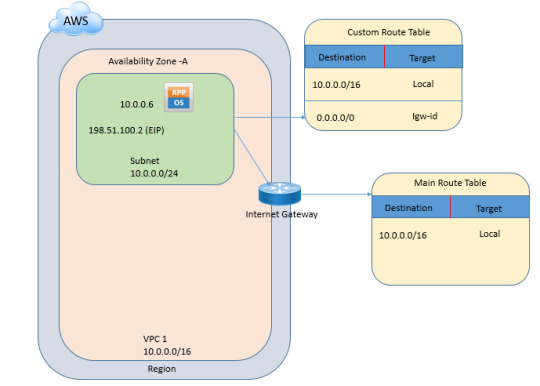#virtualprivatecloud
Explore tagged Tumblr posts
Text
Dell APEX File Storage For Azure: Unlock Your AI Potential

Use Azure’s APEX File Storage to Unlock AI Innovation. Cloud storage for AI workloads is made easier and more efficient with the new fully managed version of Dell APEX File Storage for Azure.
Synergy Between Your Data, AI, and Public Cloud
Companies are drowning in inputs from edge devices, content production, and consumer data. They are using new AI approaches to find hidden insights, forecast trends, and spur development in order to stay afloat. However, the demands on IT infrastructure increase along with data quantities.
Businesses might choose to use AI tools and services and exploit the public cloud system. Having high-performance cloud storage is essential to realizing this promise.
Purpose-Built for AI: Dell APEX File Storage for Microsoft Azure
Dell and Microsoft worked together to create APEX File Storage for Azure, a cutting-edge public cloud architecture intended to maximize data access, processing, and analysis for AI-driven applications like computer vision, natural language processing, and predictive analytics, in response to the growing need for high-performance, scalable storage solutions suited to AI workloads. It was first introduced as a Customer Managed service, but it will now also be offered as a fully managed Dell solution.
By combining the unmatched scalability and flexibility of Microsoft Azure, a top global provider of public cloud services, with the storage performance, operational consistency, and enterprise-class data services from Dell, the #1 NAS solution provider, it have developed a smooth and potent environment for handling the enormous data demands of AI workloads. This enables businesses to decrease complexity, speed up AI model training, and extract more value from their data.
Take Your Cloud Journey to the Next Level with APEX File Storage for Azure
Without requiring you to restructure your storage infrastructure, the Customer Managed and new Dell Managed service versions offer streamlined data mobility, operational consistency, and enhanced performance.
With the same user-friendly interface, API interfaces, and identity management that you are currently used to with PowerScale, you will have a familiar user experience once you are in the cloud. This simplifies overall complexity by cutting down on the amount of time spent managing data and infrastructure.
You can operate workloads on the public cloud with confidence and without sacrificing quality with to a strong suite of enterprise-class capabilities, including as native replication, snapshots, CloudPools, Quality of Service (QoS), multi-protocol access, and data reduction technologies. This implies that you may concentrate on promoting innovation rather than handling complication.
APEX File Storage and native Azure features integrate seamlessly to let you get the most out of Azure. This direct connectivity allows Azure services like Azure Machine Learning, Azure Data Factory, Azure Cognitive Services, and Azure Synapse Analytics easier to use and enables advanced data processing, real-time analytics, and intelligent applications. Lowering latency, boosting data availability, and enhancing operational efficiency lets you respond quickly to changing business needs. Additionally, by offering a consistent method for managing cloud workloads and storage, the integration streamlines management.
With two service options Customer Managed and to recently launched Dell Managed that strike a balance between customization and use, discover the unmatched versatility of APEX File Storage for Azure. Utilize Microsoft Azure Consumption Commitment (MACC) for expedited purchase and swiftly deploy with Azure Marketplace.
Unveiled at Microsoft Ignite 2024, the new Dell Managed version offers a simplified experience that frees up IT personnel to concentrate on important projects. You can be sure that your storage infrastructure is modern and optimal when Dell takes care of deployment, monitoring, maintenance, and updates. To anticipate that this solution, which was developed in close cooperation with Microsoft, will offer the best scalability and performance density available. It will be readily deployable through the Azure portal and immediately deployed within your company’s Virtual Private Cloud (VPC) in the public cloud environment when it launches in the first half of next year.
Earlier this year, to released the Customer Managed version, which is intended for businesses that require unique setups. You may customize the solution to fit your particular requirements by having fine-grained control over the architecture, design, deployment, scalability, and infrastructure. With the best performance at scale for AIII, it can accommodate up to 18 nodes and 5.6PiB in a single namespace. Additionally, a Terraform module is used for auto deployment and management, which streamlines the procedure and lessens administrative strain.
It devotion to meeting client demands, supported by Dell’s commitment to providing outstanding support and service, is what further distinguishes APEX File Storage for Azure. The proactive support service has a 97% customer satisfaction record and offers highly skilled professionals around-the-clock, every day of the year. In order to guarantee effective deployment and best utilization of cloud resources, generating long-term value, to Dell Professional Services team provides knowledgeable advice and customized support.
Read more on govindhtech.com
#DellAPExFileStorage#Azure#AIPotential#AItools#Cloudstorage#naturallanguageprocessing#AImodel#publiccloud#AzureMachineLearning#technology#technews#VirtualPrivateCloud#VPC#news#govindhtech
1 note
·
View note
Text


Elevate your networking skills with hands-on experience configuring Virtual Port Channels (vPC) in this comprehensive lab. Master vPC setup for enhanced network reliability and performance. https://www.dclessons.com/lab-configuring-vpc
#VPC#CloudNetworking#NetworkConfiguration#VirtualPrivateCloud#ITInfrastructure#NetworkManagement#CloudComputing#AWSVPC
0 notes
Text
Private Cloud Storage Demystified: Types and Usage Scenarios

What is Private Cloud Storage?
Private cloud storage refers to a cloud computing model where the infrastructure is dedicated to a single organization, offering enhanced security and control over data. Unlike public cloud storage, where resources are shared among multiple users, private cloud storage ensures that all resources are exclusively used by one organization.
Why Choose Private Cloud Storage?
Private cloud storage offers several benefits, making it an ideal choice for businesses that prioritize data security and compliance:
Enhanced Security: With a private cloud, organizations have complete control over their data security measures, ensuring that sensitive information is protected from unauthorized access.
Customization: Private cloud solutions can be tailored to meet the specific needs of an organization, providing flexibility in terms of infrastructure and service levels.
Compliance: For industries with stringent regulatory requirements, private cloud storage offers the ability to maintain compliance by providing greater control over data management practices.
Performance: Private clouds often deliver better performance since resources are not shared with other users, leading to more reliable and consistent access to data.
Implementing Private Cloud Storage
Implementing a private cloud storage solution involves several key steps:
Assess Your Needs: Evaluate your organization’s data storage requirements, security needs, and compliance obligations to determine if a private cloud solution is the right fit.
Choose the Right Technology: Select the appropriate hardware and software to build your private cloud infrastructure. This includes servers, storage devices, networking equipment, and virtualization software.
Design the Architecture: Plan the architecture of your private cloud to ensure it meets your organization’s needs for scalability, redundancy, and disaster recovery.
Implement Security Measures: Establish robust security protocols, including encryption, access controls, and monitoring to protect your data.
Manage and Monitor: Continuously manage and monitor your private cloud environment to ensure optimal performance and security.
Best Practices for Private Cloud Storage
To maximize the benefits of private cloud storage, consider the following best practices:
Regular Backups: Implement regular data backups to prevent data loss in case of hardware failure or other disasters.
Access Controls: Restrict access to sensitive data by implementing role-based access controls (RBAC) and ensuring that only authorized personnel can access critical information.
Data Encryption: Encrypt data both at rest and in transit to protect it from unauthorized access.
Compliance Monitoring: Regularly review and update your data management practices to ensure compliance with industry regulations.
Performance Optimization: Monitor the performance of your private cloud infrastructure and make necessary adjustments to optimize speed and reliability.
Challenges of Private Cloud Storage
While private cloud storage offers numerous advantages, it also presents certain challenges:
Cost: Implementing and maintaining a private cloud can be expensive, as it requires significant investment in hardware, software, and skilled IT personnel.
Complexity: Managing a private cloud infrastructure can be complex, requiring specialized knowledge and expertise.
Scalability: Scaling a private cloud environment may require additional investments in hardware and infrastructure, which can be time-consuming and costly.
Maintenance: Regular maintenance is essential to ensure the security and performance of the private cloud, which can be resource-intensive.
Conclusion
Private cloud storage provides a secure, customizable, and compliant solution for organizations looking to manage their data effectively. By following best practices and addressing potential challenges, businesses can leverage the benefits of private cloud storage to enhance their data management strategies and ensure the security of their information.
0 notes
Text
youtube
0 notes
Photo

(via Fix Elastic IP Address Could not be Associated)
0 notes
Link
0 notes
Text
Virtual Private Cloud Market Size, Development, Key Opportunity, Application & Forecast to 2025
This report studies the global Virtual Private Cloud market, analyzes and researches the Virtual Private Cloud development status and forecast in United States, EU, Japan, China, India and Southeast Asia. This report focuses on the top players in global market, like • Amazon Web Services (U.S.) • HP (U.S.) • IBM Corporation (U.S.) • Microsoft Corporation (U.S.) • Google, Inc. (U.S.) • VMware, Inc. (U.S.) • Oracle (U.S.) • Cisco Systems, Inc. (U.S.) • Red Hat, Inc. (U.S.) • NetApp, Inc. (U.S.)
Download Free Sample Report @ https://www.radiantinsights.com/research/2018-2025-virtual-private-cloud-report/request-sample
Market segment by Regions/Countries, this report covers • United States • EU • Japan • China • India • Southeast Asia
Market segment by Type, the product can be split into • Large Enterprises • SMEs • SMBs
Market segment by Application, the market can be split into • BFSI • Transportation • Healthcare • Hospitality • E-Commerce • Telecom • Public Sector • Others
Browse Full Research Report with TOC @ https://www.radiantinsights.com/research/2018-2025-virtual-private-cloud-report
Table of Contents
2018-2025 Virtual Private Cloud Report on Global and United States Market, Status and Forecast, by Players, Types and Applications 1 Industry Overview of Virtual Private Cloud 1.1 Virtual Private Cloud Market Overview 1.1.1 Virtual Private Cloud Product Scope 1.1.2 Market Status and Outlook 1.2 Global Virtual Private Cloud Market Size and Analysis by Regions 1.2.1 United States 1.2.2 EU 1.2.3 Japan 1.2.4 China 1.2.5 India 1.2.6 Southeast Asia 1.3 Virtual Private Cloud Market by Type 1.3.1 Large Enterprises 1.3.2 SMEs 1.3.3 SMBs 1.4 Virtual Private Cloud Market by End Users/Application 1.4.1 BFSI 1.4.2 Transportation 1.4.3 Healthcare 1.4.4 Hospitality 1.4.5 E-Commerce 1.4.6 Telecom 1.4.7 Public Sector 1.4.8 Others
2 Global Virtual Private Cloud Competition Analysis by Players 2.1 Virtual Private Cloud Market Size (Value) by Players (2017 and 2018) 2.2 Competitive Status and Trend 2.2.1 Market Concentration Rate 2.2.2 Product/Service Differences 2.2.3 New Entrants 2.2.4 The Technology Trends in Future
3 Company (Top Players) Profiles 3.1 Amazon Web Services (U.S.) 3.1.1 Company Profile 3.1.2 Main Business/Business Overview 3.1.3 Products, Services and Solutions 3.1.4 Virtual Private Cloud Revenue (Value) (2013-2018) 3.1.5 Recent Developments 3.2 HP (U.S.) 3.2.1 Company Profile 3.2.2 Main Business/Business Overview 3.2.3 Products, Services and Solutions 3.2.4 Virtual Private Cloud Revenue (Value) (2013-2018) 3.2.5 Recent Developments 3.3 IBM Corporation (U.S.) 3.3.1 Company Profile 3.3.2 Main Business/Business Overview 3.3.3 Products, Services and Solutions 3.3.4 Virtual Private Cloud Revenue (Value) (2013-2018) 3.3.5 Recent Developments 3.4 Microsoft Corporation (U.S.) 3.4.1 Company Profile 3.4.2 Main Business/Business Overview 3.4.3 Products, Services and Solutions 3.4.4 Virtual Private Cloud Revenue (Value) (2013-2018) 3.4.5 Recent Developments 3.5 Google, Inc. (U.S.) 3.5.1 Company Profile 3.5.2 Main Business/Business Overview 3.5.3 Products, Services and Solutions 3.5.4 Virtual Private Cloud Revenue (Value) (2013-2018) 3.5.5 Recent Developments
Read all Reports of this category @ https://www.radiantinsights.com/catalog/ict
About Radiant Insights Radiant Insights is a platform for companies looking to meet their market research and business intelligence requirements. It assists and facilitate organizations and individuals procure market research reports, helping them in the decisions making process. The Organization has a comprehensive collection of reports, covering over 40 key industries and a host of micro markets. In addition to over extensive database of reports, experienced research coordinators also offer a host of ancillary services such as, research partnerships/ tie-ups and customized research solutions.
Media Contact: Company Name: Radiant Insights, Inc Contact Person: Michelle Thoras Phone: (415) 349-0054 Toll Free: 1-888-928-9744 Address: 201 Spear Street 1100, Suite 3036, City: San Francisco; State: California; Country: United States Email: [email protected] Website: https://www.radiantinsights.com/
1 note
·
View note
Link
Overview of an Amazon Virtual Private Cloud Virtual service provides the networking layer of EC2. A VPC is a virtual network that can contain EC2 instances as well as network resources for other AWS services. By default, every VPC is isolated from all other networks.
Read More : https://www.info-savvy.com/overview-of-an-amazon-virtual-private-cloud/
0 notes
Photo

AWS Certification Training - Free AWS Tutorials: Understanding Amazon Virtual Private Cloud (VPC) http://ehelpdesk.tk/wp-content/uploads/2020/02/logo-header.png [ad_1] The Amazon Virtual Private Cloud... #amazonaws #amazonawstutorials #amazontutorialseries #amazonvirtualcloud #amazonvpc #amazonwebservices #aws #awsamazon #awsbasicsforbeginners #awscertification #awscertified #awscertifiedcloud #awscertifiedcloudpractitioner #awscertifieddeveloper #awscertifiedsolutionsarchitect #awscertifiedsysopsadministrator #awscloud #awscloudtutorial #awsfundamentals #awstraining #awstutorial #awstutorialforbeginners #awstutorials #awsvpc #ciscoccna #comptiaa #comptianetwork #comptiasecurity #cybersecurity #ethicalhacking #freeaws #freeawstutorials #freeawsvideos #gettingstartedwithaws #howtogetcertified #it #kubernetes #linux #microsoftaz-900 #microsoftazure #networksecurity #software #virtualprivatecloud #vpc #whatisaws #windowsserver
0 notes
Text
Endpoint Server Security Solutions for AWS Cloud
One of the important aspects of security is protection of servers using endpoint solution and it's a common approach in traditional enterprise deployments.
By using an endpoint server security, we can protect cloud servers against common malware attacks, intrusion prevention, perform integrity monitoring and application scanning etc.

(Image credit - Golime)
We have worked with some of the solutions shared in this blog and the below section will provide an overview of different solutions for virtual servers security (EC2 instances) in AWS Cloud along with our perspective:
TrendMicro DeepSecurity - TrendMicro is one of the early traditional security vendors with support for AWS Cloud virtual servers security. They offer an agent based solution to protect servers against malware attacks, hosted based intrusion detection and prevention, file integrity and log monitoring. You can control and manage all agents from a single dashboard. The pricing is flexible for Cloud and they charge 20% of your EC2 server fees as monthly charge for endpoint server security.
Sophos Endpoint Antivirus - You can use Sophos Cloud solution to protect the Windows infrastructure in the cloud. They offer Sophos SecureOS, which is a flavour of CentOS with security. They don't support Linux yet in Sophos Cloud.
McAfee - They provide ePO product (management console) along with anti-virus and anti-malware solutions. It works on Windows and supports most of the Linux environments. Their anti-virus product is called VirusScan Enterprise. They are one of the traditional and popular end point security vendor. They have a free secured Amazon Linux AMI in marketplace.
Bitdefender SaaS Security - They offer a good anti-malware solution for protecting both Windows and Linux workloads in AWS Cloud. It supports pay-as-you-go billing like TrendMicro DeepSecurity. This solution is offered via AWS marketplace.
CloudPassage Halo - They offer a software defined security for Cloud infrastructure with workload firewall management, file integrity monitoring, software vulnerability assessment and event logging/alerting. Their agents are certified for both Windows and Linux environments with broad support for infrastructure in Cloud and On-premise.
OSSEC - This is one of the popular open source options and doesn't provide full anti-virus solution. However it includes Host Based Intrusion Detection(HIDS), File Integrity Monitoring, Rootkit Detection and ability to block certain attack patterns at server level. It supports both Windows and Linux environments.
Some of the customers also look at next generation firewall solutions that combine the IPS, IDS, AntiVirus, AntiMalware etc into one appliance for protecting the virtual private cloud infrastructure in AWS by using network gateway approach. We will talk about this option in future blog posts.
We recommend you to look at deploying OSSEC at the minimum on servers for host level protection if you cannot use any other solutions.
Most of the traditional security vendor solutions should work on AWS Cloud and some of them are embracing the pay-as-you-go pricing model for their security solutions on Cloud.
WANT TO KNOW MORE ABOUT THE CLOUD SECURITY SOLUTIONS?
Give us a shout here or mail us at [email protected]. Stay tuned!
1 note
·
View note
Text

Explore vPC traffic flows for optimized network performance and reliability. Enhance your vPC configuration skills for seamless data exchange in your network environment. https://www.dclessons.com/vpc-traffic-flows
#VPC#TrafficFlows#CloudComputing#AWS#VirtualPrivateCloud#NetworkSecurity#CloudNetworking#ITInfrastructure#DataCenter#CloudServices#NetworkArchitecture
0 notes
Text

Step into the world of configuring vPC and its components through interactive labs. Strengthen network reliability and performance with expert guidance. https://www.dclessons.com/labconfiguring-vpc-its-components
#DClessons#VPC#Networking#AWS#CloudComputing#Infrastructure#Configuration#VirtualPrivateCloud#TechTutorial#CloudManagement#AWSVPC#NetworkSecurity
0 notes
Text

Elevate your network architecture knowledge! Explore DC Lessons' course on VPC Configuration Best Practices. Master the art of Virtual Private Cloud setup with practical insights and industry best practices. https://www.dclessons.com/vpc-configuration-best-practices
#VPC#CloudInfrastructure#BestPractices#NetworkingSkills#ITOptimization#TechLearning#CloudSecurity#DClessons#VirtualPrivateCloud#ITProfessionals#CareerDevelopment
0 notes
Text


Ready to gain a deep understanding of Virtual Port Channels (VPC) and how traffic flows within this critical network technology? DC Lessons presents an engaging course tailored for IT professionals, network administrators, and anyone eager to master the art of efficient network traffic management. https://www.dclessons.com/vpc-traffic-flows
#VPC#AWS#CloudNetworking#NetworkSecurity#TrafficFlows#CloudInfrastructure#VirtualPrivateCloud#NetworkingBasics#dclessons#CloudComputing#AWSNetworking#DataSecurity#CloudArchitecture#VPCFlows#ITInfrastructure#CloudSecurity
0 notes
Text

Are you ready to become an expert in Virtual Port Channels (VPC) and understand the crucial aspects of consistency checks and failover scenarios? DC Lessons presents a comprehensive course designed for IT professionals, network engineers, and anyone passionate about network redundancy and high availability. https://www.dclessons.com/vpc-consistency-check-and-failover-scenarios
#VPC#ConsistencyCheck#FailoverScenarios#DClessons#Networking#CloudComputing#AWS#VirtualPrivateCloud#NetworkSecurity#InfrastructureAsCode#CloudArchitecture#ITLearning#TechTutorial#CloudManagement#NetworkingTips
0 notes
Text

Are you ready to explore the world of Virtual Port Channels (VPC) and its components in-depth? DC Lessons presents an engaging course designed for IT professionals, network engineers, and anyone looking to master the intricacies of VPC configurations. https://www.dclessons.com/labconfiguring-vpc-its-components
#VPC#AWS#CloudComputing#NetworkConfiguration#Infrastructure#AmazonWebServices#NetworkSecurity#Subnet#InternetGateway#RouteTables#SecurityGroups#NetworkACL#VirtualPrivateCloud#AWSNetworking#CloudInfrastructure
0 notes